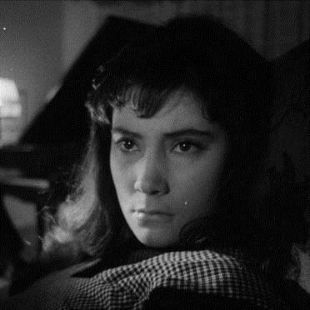
It's a love story, it's a story of betrayal; it's a war drama, it's an anti-war diatribe, it's a tribute to the resiliency of Mother Russia, it's a dark and disturbing psychological melodrama of one woman's one bad choice and its consequences. Since its acclaimed appearance at the 1958 Cannes Film Festival, where it received the Palm D'Or, and its crossover appeal to Cold War American film audiences and subsequent long run in repertory houses into the 1970s, Mikhail Kalatazov's deliriously charged film has somehow been relegated to the status of a curiosity. It deserves a re-examination, if only because it's a movie that, in a mere 90 minutes, manages to convey an amazing amount of personal and public history. The Soviet Union's entry into World War II is foreshadowed by one of the most lyrical courtships ever filmed, with Kalatazov's camera following Boris and his beloved "Squirrel" (Veronica) through the deserted pre-dawn streets. Veronica, played by the luminous Tatyana Samoylova (the grandniece of legendary acting coach Constantin Stanislavsky) misses an opportunity to see off her lover when his troop train leaves for the front, and she spends the rest of the story waiting for him, while relatives are killed, she is seduced by his cousin (during an air raid!), she is evacuated with Boris's family to Siberia, she is implicitly denounced by Boris's doctor father when he tries to cheer up a soldier patient who has just received a Dear John letter, she contemplates suicide, and she adopts an abandoned boy (named Boris!). If there's an overkill of irony at work in the story's machinations, it's neatly papered over by the prowling camera and striking compositions; Kalatazov is one of the few filmmakers who might be called an expressionistic realist. He has never met a crane shot he didn't like and uses every excuse to follow his characters up winding staircases and through crowds of people indifferent to their emotional turmoil. The film's politics may be muddled (it's not entirely clear here if the war really worth fighting), but the filmmaking is bold and rapturous, just as in Kalatazov's next great work, I Am Cuba.
